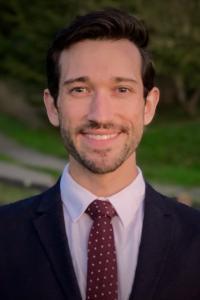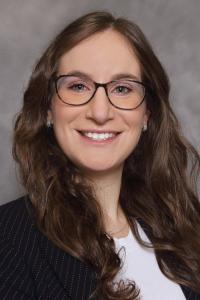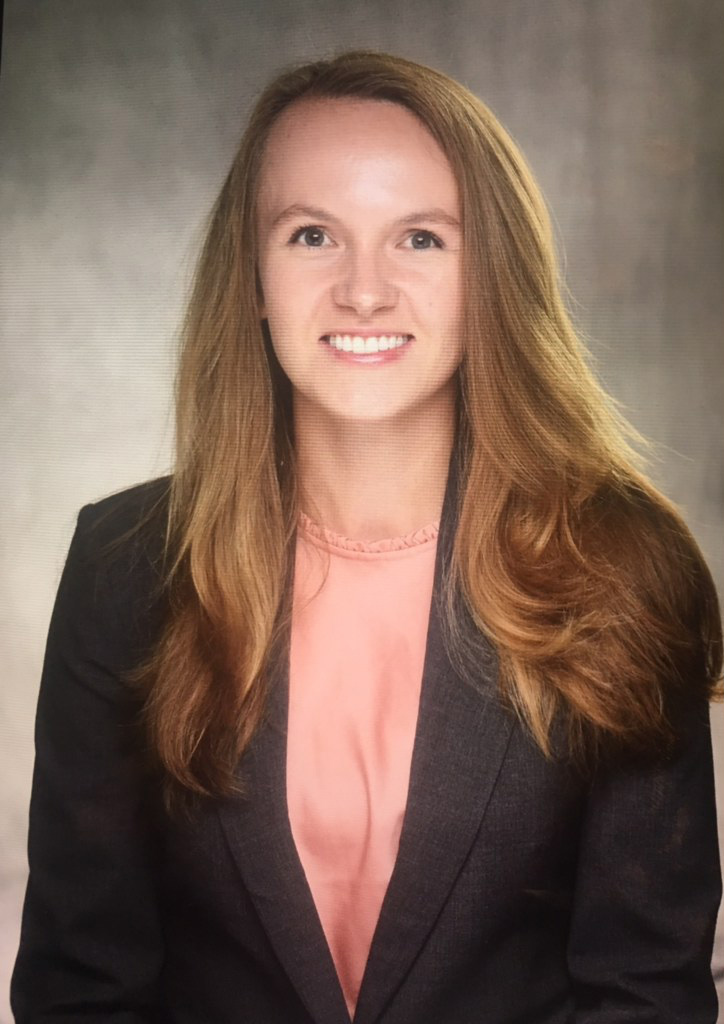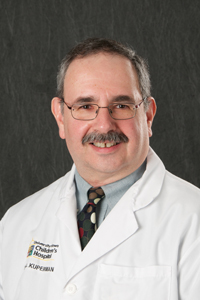Child and Adolescent Psychiatry Residency
Welcome
The Child and Adolescent Psychiatry Residency Program at the University of Iowa is a two-year, ACGME-accredited program that offers comprehensive exposure to psychiatric disorders in children and adolescents. The program balances a strong neurobiological and sociocultural focus with solid psychotherapy training.
Residents work as a team alongside other childhood specialty services–including child psychology and neuropsychology, education, social work, nursing, and speech pathology–to ensure optimal care for patients.
Research opportunities are also available for those interested.
If you are interested in a CAP position, feel free to reach out to Our Team:
• Dr. Carissa Gunderson at carissa-gunderson@uiowa.edu
• Dr. Deumic Shultz at emira-deumic@uiowa.edu
• Meggan Riggan-Rocha at meggan-riggan-rocha@uiowa.edu
Please also feel free to contact us about child and adolescent (CAP) psychiatry fellowship positions that may be available outside the typical application season and match process.
About the Program
We invite you to consider the advantages of a program that has:
- Accomplished and thoughtful faculty members dedicated to your education and success
- Comprehensive exposure to psychiatric disorders in children and adolescents
- A strong neurobiological and sociocultural focus with a solid balance of psychotherapy training
- The intimacy and collegiality of a small training program with the excellence provided by association with a top-notch research university
- A state-of-the-art clinical facility
The accomplishments of our residency graduates demonstrate our commitment to help you develop necessary medical knowledge, attitude, and skills to succeed in your career endeavors.
Quick Facts
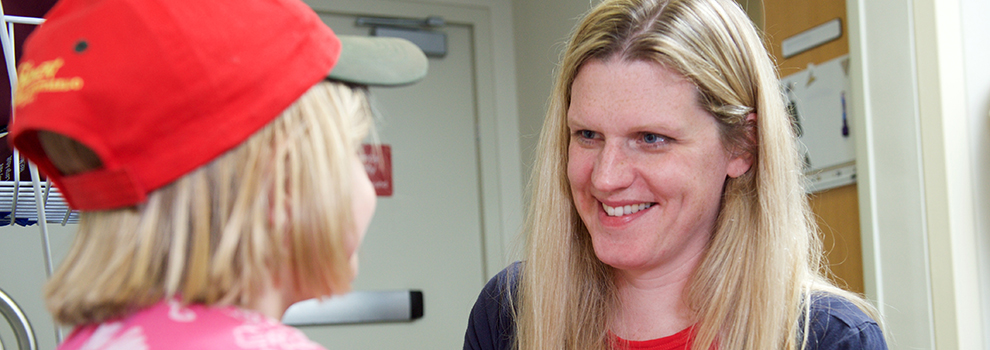
By the Numbers
- 3 residents are accepted each year
- 6 positions are approved for our program
- 14 faculty members are certified in child and adolescent psychiatry
Benefits
- Competitive stipends
- Comprehensive medical, dental, hospitalization, and pharmacy coverage
- 21 days of annual paid time off
Board Certification Requirements
Visit the American Board of Psychiatry and Neurology for specifics on board certification requirements.
Program Accreditation
The Child and Adolescent Psychiatry Residency Program at UI Health Care Medical Center is accredited by the Accreditation Council for Graduate Medical Education. For more information specific to program requirements for a child and adolescent psychiatry training program, please read the ACGME Program Requirements for Accreditation.
Frequently Asked Questions
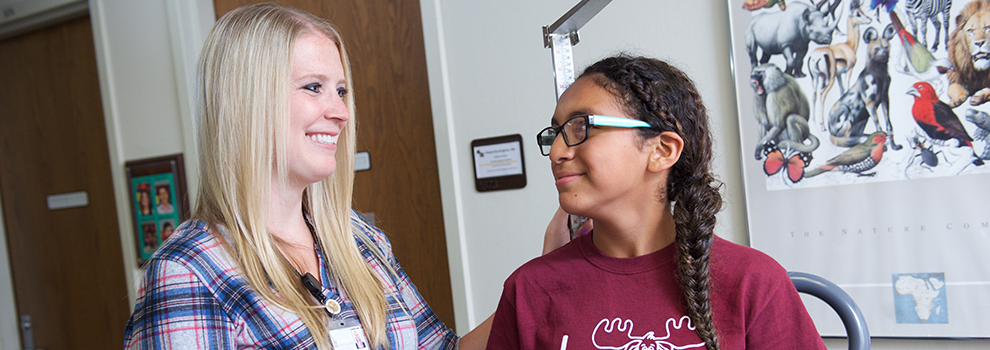
Where is Iowa City?
Iowa City is 220 miles directly west of Chicago on Interstate 80. It's also within a 4-5 hour drive to Milwaukee, Madison, Minneapolis, Omaha, Kansas City, and St. Louis. It has the cultural, educational, social, and political opportunities of a bigger city with the values and ambiance of a midwestern town. It is clean, safe, nothing is farther than a 15-minute car ride, it has a great city bus system (with bike racks!), wonderful parks, sports, schools, and even sailing. Those who have lived here and left, frequently return because what they were looking for was in their own backyard.
How diverse is the patient population?
We have a surprisingly large international community here, drawn both from the university students and staff and from refugee resettlement programs in the local area. Iowa City itself is 80% white and primarily English speaking, but it’s also quite common to hear Spanish, French, Swahili, and Lingala whether you’re out around town on a weekend or working in the clinic. We also have several small Amish and Mennonite communities in the area. The university works hard to recruit and retain a diverse group of residents and faculty and is regularly named to US News & World Report’s list of top employers for diversity, as well as its list of top employers for women.
What is there to do in Iowa City when you're not working?
There are 15 different festivals and art fairs, plus concerts and race events. There are many music venues, sports events and neighborhood street fairs and garden walks. We also have a really big mall and several smaller ones, 41 parks, nine golf courses, six public tennis courts, six public pools, some lakes and a reservoir with trails, camping, and boating. There are bike trails, some famous bookstores, a ton of galleries, and excellent museums. There are half a dozen or more performing arts venues including Hancher Auditorium. There is always something going on. Find more information from the Iowa City/Coralville Convention and Visitors Bureau.
What's Iowa City like for kids and families?
There's ice skating, bowling, organized sports, 50 public parks, miniature golf, a great public library, a toy library, fun centers, swimming pools and three beaches, nine museums including a children's museum, dance companies, and public recreation centers that feature many activities for kids and families at little or no cost. We also have 20 movie screens and 50-licensed daycare providers. The Iowa City schools are perennially ranked among the top schools in the nation. Iowa City is unique in the facilities and services available for individuals with disabilities. Many families who have a family member with a disability are reluctant to leave Iowa City because they cannot duplicate those services in another location.
Is this a family friendly program?
Yes! We love children and support residents in their efforts to balance work with family life. Female residents receive up to six weeks of paid maternity leave after delivery. Male residents get five working days off for paternity leave. The house staff health insurance policy, provides full coverage for spouses and children. There are several childcare facilities near the hospital and one on-site. In addition, our residents are not required to take call.
Is there sufficient patient volume so that I can have multiple exposures to a variety of diseases?
The Child and Adolescent Psychiatry Residency Program at UI Health Care Medical Center has a patient volume that allows you to become a well-trained private practitioner who is confident in your ability to see a child of any age with a wide variety of mental illnesses.
What's the call schedule like?
Our residents do not take overnight call. Residents cover clinic call during business hours when they are assigned to the outpatient clinic. Residents do not cover clinic call when assigned to the inpatient unit or off-service rotations.
Do you have a research project requirement for graduation?
While we do not have a requirement to complete a research project, residents are encouraged and supported in scholarly work. A resident may choose to spend one-half day a week during their outpatient rotation in their second year of training to pursue a research project. A senior presentation, in the form of a didactic presentation on a topic of choice, is required of residents during their second year of training.
Training at a Glance
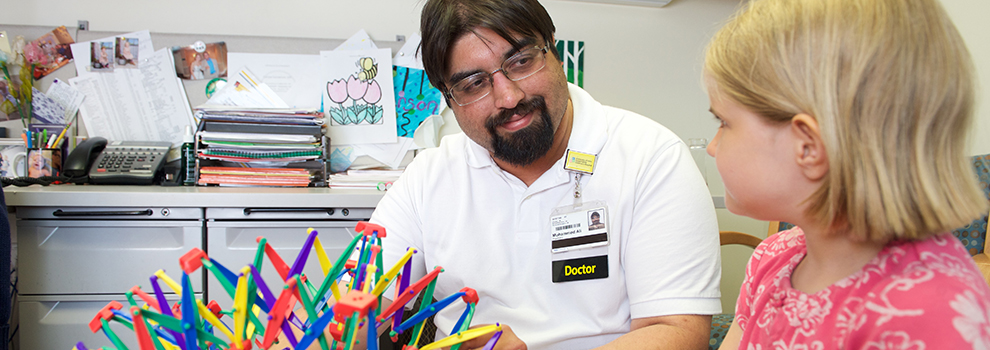
First Year
- 7 blocks Child and Adolescent Psychiatry Outpatient Clinic
- 4 blocks Child and Adolescent Psychiatry Inpatient Unit
- 1 blocks Pediatric Neurology Outpatient Clinic
Second Year
- 7 blocks Child and Adolescent Psychiatry Outpatient Clinic
- 4 blocks Consultation-Liaison/Emergency Psychiatry Service
- 4 blocks School and Community Consultation (half day per week)
- 1 blocks Center for Disabilities and Development (developmental pediatrics)
View the ![]() schedule as a table.
schedule as a table.
Clinical Rotations
Training in child and adolescent psychiatry at the University of Iowa will encompass the requirements set forth by the American Board of Psychiatry and Neurology Residency Review Committee. The two-year subspecialty training in the child and adolescent psychiatry program will include both outpatient and inpatient rotations, exposing residents to a wide range of clinical problems of varied complexity as well as in-depth experience in the psychiatric care of children and adolescents. During their two-year subspecialty training, the child and adolescent residents are not required to take call.
Child and Adolescent Psychiatry Outpatient Clinic
In the Child and Adolescent Psychiatry outpatient clinic, residents see a variety of new diagnostic evaluations while maintaining a continuity of care follow-up clinic. Diagnostics are comprehensive evaluations, which are either completed as part of a multidisciplinary team that include psychology, education, and speech-language pathology or as physician-only exams with the option of referring on to the multidisciplinary team. A mixture of medication management and psychotherapy patients are followed by each resident as part of the continuity of care follow-up clinic experience.
Child and Adolescent Psychiatry Inpatient Unit
The Child and Adolescent Psychiatry Inpatient unit is a 15-bed facility with children ranging in age from 3 to 17 years old. While assigned to the inpatient unit, residents participate in multidisciplinary rounds each day, attend family meetings, and assess newly admitted patients. Group and individual therapy are available to patients, as well as educational support and recreation therapy.
Consultation-Liaison Psychiatry Service
Residents on the Consultation-Liaison Psychiatry Service learn about and treat the wide variety of psychiatric disturbances that occur among medically ill children and adolescents while consulting and collaborating with their non-psychiatric peers. Common referral sources include Pediatric Neurology, Pediatric Hematology-Oncology, and General Pediatrics.
School and Community Consultation
During the School and Community Consultation rotation, residents:
- Participate in a weekly multidisciplinary triage team meeting at a local junior high school
- Observe classrooms including a specialized youth program for autism spectrum youth
- Observe and interact with children in the preschool setting under the supervision of an on-site developmental psychologist
- Provide general information about the variety of psychiatric disorders that have an impact on children’s abilities to function in the school setting and assist the team in assessing the need for further referral
- Have the opportunity to observe a community-based treatment program
Pediatric Neurology Outpatient Clinic
In the Pediatric Neurology Outpatient Clinic, residents see new and existing patients with diagnoses in areas such as neuromuscular disorders, seizure disorders, muscular dystrophies, and degenerative disorders. Residents also have the opportunity to participate in outreach clinics in surrounding communities.
Center for Disabilities and Development
In this specialized second year rotation, residents are supervised by developmental pediatricians, behavioral psychologists, and a pediatrician who is board-certified in child abuse and neglect. Residents also work closely with an accomplished group of behavioral therapists and learn about functional behavioral analysis from a national expert.
Residents participate in a number of clinical areas while rotating at the Center for Disabilities and Development, including multidisciplinary developmental evaluations, biobehavioral evaluations, Child Protective Service evaluations, and other specialty services.
Education and Conferences
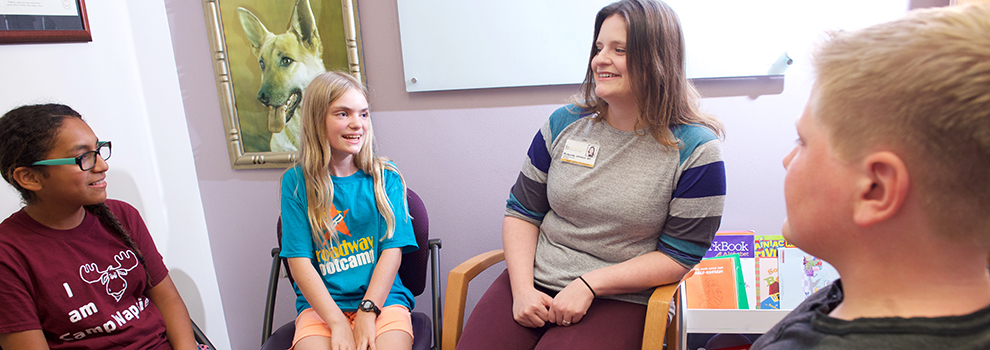
Didactic time is protected and averages one half-day per week.
Core Curriculum
Broadly, topics include ethics, forensics, psychopharmacology, psychopathology, psychotherapies (including DBT, CBT, Family Therapy, Psychodynamic Psychotherapy, Mentalization-based Approaches, Applied Behavioral Analysis, Habit Reversal Therapy, and other Evidence-based Psychotherapies), development, neuropsychiatry, and consultation-liaison which are held on a rotating two-year schedule.
Child and Adolescent Psychiatry Journal Club/Case Conference
Child and Adolescent Psychiatry Journal Club is a monthly resident-led presentation of either a current journal article or a seminal paper for review and discussion to the other residents and faculty. With a faculty member as a facilitator, the methods and design of the study, as well as the results and conclusions, are discussed. In addition to helping residents remain well-informed on current research topics, the seminar encourages critical thinking while reading published articles.
Our monthly case conference, attended by faculty and fellows, is a forum where fellows present complex cases and so that diagnostic and treatment approaches can be discussed.
Research in the Clinical Setting
Research in the Clinical Setting is a once-weekly seminar where residents review the core literature, gaining skills in the application of this research to their clinical practice.
- AACAP practice parameters
- Landmark studies review
- Case studies
- Review of evidence based psychotherapies and treatments
Psychotherapy Supervision
All fellows have one hour per week of individual psychotherapy supervision. In addition, fellows have regular DBT Psychotherapy group supervision and Psychodynamic Psychotherapy group supervision.
Electives
Fellows have up to one day per week in their second year for electives. Options include:
- Sleep Disorders Clinic
- School/Community Based Mental Health
- Autism/Intellectual Disabilities
- Parent-Child Interaction Therapy (PCIT)
- Dialectical Behavioral Therapy (DBT) group facilitation
- Women's Wellness Clinic (perinatal psychiatry)
- Interventional Psychiatry (e.g. ECT, TMS)
- Medication-assisted Treatment (MAT) clinic
Grand Rounds
Grand Rounds is a weekly session presented by University of Iowa faculty or well-known speakers from around the country. Focusing on clinical updates in the field of psychiatry, patients are sometimes interviewed during the presentation. Examples of topics include genetics of substance abuse, issues in forensic psychiatry, psychiatric effects of brain stimulation, optimal management of schizophrenia, working with sexual or gender minority youth, eating disorders, telepsychiatry, parent-child interaction therapy, mentalization, and autism spectrum disorders.
How to Apply
If you are interested in applying to the Child and Adolescent Psychiatry Residency Program, visit Electronic Residency Application Service. A training verification form completed by your general adult psychiatry residency training director is also required.
A complete Electronic Residency Application System (ERAS) application includes:
- Curriculum Vitae
- Personal Statement
- Photo
- Copy of Medical School Diploma
- Official Medical School Transcript
- Medical School Dean’s Letter
- USMLE or COMLEX Transcript
- Four Letters of Recommendation (General Psychiatry Training Program Director plus three additional letters from clinical faculty)
- Training Verification Form (see link above)
- ECFMG Certificate (if applicable)
- Visa Status (if applicable)
Eligibility
Qualified applicants to the University of Iowa Child and Adolescent Psychiatry Residency Program are those who have successfully completed medical school and three years of general adult psychiatry training requirements at an accredited institution.
Deadline
Applications must be received by November 1.
Applicants will be invited for interviews following the review of completed application packets. Interviews are conducted September through November.
The Interview
Interviews will be conducted virtually
What should I expect on the interview day?
The components of your interview may include:
- An overview of the program
- A meeting with the division chair
- An interview with the program director and faculty members
Our People
It takes a special person to dedicate his or her life to the care and healing of children. From the specialty consultant to the faculty physician, from the reception desk to the administration office, you will find our people eager to help you become the best child and adolescent psychiatrist you can be. All staff are committed to helping you achieve your training aims and will share in the support and encouragement that will help you excel.
At Iowa, you will be exposed to some of the best clinicians, researchers, and teachers in our profession. Through formal mentoring as well as an open-door philosophy, we provide high-powered opportunities for you to learn career-long lessons from these dedicated professionals.
Current Residents
PGY4
Jake Erickson, MD
Undergraduate school: Idaho State University
Medical school: University of Utah School of Medicine
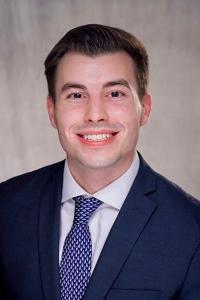
Logan Goetzinger, MD
Undergraduate school: Wartburg College
Medical school: University of Iowa Roy J. And Lucille A. Carver College of Medicine
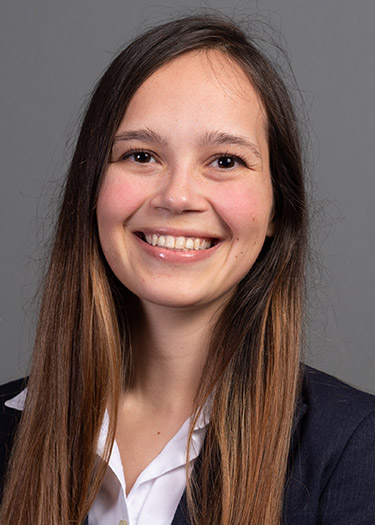
Katlynn Nason, MD
Undergraduate School: University of North Carolina Wilmington
Medical School: Eastern Virginia Medical School
Professional Interests: Neurodevelopmental Disabilities, Community Psychiatry
PGY5
Lucy Chisler, DO
Undergraduate School: Reed College, Portland, OR
Medical School: West Virginia School of Osteopathic Medicine
Emily Lelchuk, MD
Undergraduate School: University of Illinois at Chicago
Medical School: University of Illinois at Chicago College of Medicine
Professional Interests: Mood disorders, Women's health
Olivia Pittman, MD
Undergraduate School: University of Iowa
Medical School: University of Iowa Carver College of Medicine
Professional Interests: Community and Rural Psychiatry
Chair and Department Executive Officer Peggy Nopoulos
Welcome to the Child and Adolescent Psychiatry training program at the University of Iowa! As the Department Chair, I am excited about our educational mission. We are a highly regarded psychiatry department nationally in clinical care and research. We similarly believe we are a top department in the educational domain, as we are deeply committed to excellence in teaching, and have had great success in turning out well trained and highly sought after residents. Certainly our Child and Adolescent Psychiatry residents have consistently been superb.
We are very proud of the success of our Child and Adolescent Psychiatry program. Its roots stretch back to the beginning of our department in 1920, when Department Chair Samuel Orton, pioneered the study of dyslexia. He worked with a student here named Lauretta Bender, who went on to become one of the founders of the field of child psychiatry. Since that time many distinguished child psychiatrists have graced our halls, including Richard Jenkins, among the first to successfully treat Tourette syndrome, Mark Stewart, an expert on ADD and conduct disorder, and Joe Piven, a current leader in autism research.
 The department has been training psychiatrists since the 1920s, with the first of these being Dr. George Sprague, who graduated in 1922. He went on to a distinguished career that included being on the committee that wrote the first Diagnostic and Statistical Manual or DSM, in 1952. Recently retired past Child and Adolescent Psychiatry Division head Sam Kuperman has been active in the training program since 1989 and continues to be an active educator. His success is reflected in the recent establishment, by a grateful former trainee, of the Sam Kuperman Career Development Fund in Child Psychiatry.
The department has been training psychiatrists since the 1920s, with the first of these being Dr. George Sprague, who graduated in 1922. He went on to a distinguished career that included being on the committee that wrote the first Diagnostic and Statistical Manual or DSM, in 1952. Recently retired past Child and Adolescent Psychiatry Division head Sam Kuperman has been active in the training program since 1989 and continues to be an active educator. His success is reflected in the recent establishment, by a grateful former trainee, of the Sam Kuperman Career Development Fund in Child Psychiatry.
Our Child and Adolescent Psychiatry Training Program Director, Dr. Carissa Gunderson, is a master clinician and a tireless advocate for trainees. Dr. Gunderson has a stellar reputation here in Iowa for her insightful clinical care, particularly in the interdisciplinary ADHD clinic she created, but has made a mark at the national level with her involvement in medical student career development within the Klingenstein Third Generation Foundation program which she brought to Iowa in 2015. Associate Program Director, Dr. Emira Deumic Schultz, while new to this position, brings years of teaching experience with medical and undergraduate students and a strong interest in interventions for sleep and physical health within child psychiatry.
Our goal is to provide residents with a broad education that will prepare them for life-long self-learning and dedication to the practice of psychiatry at the forefront of evolving knowledge. We seek to provide residents with a variety of educational experiences so that they may choose among the many available career options. Our residents consistently score high on national examinations and frequently receive awards. These have recently included election to an APA/Substance Abuse and Mental Health Services Administration Minority Fellowship. While many of our Child and Adolescent Psychiatry residents have gone into clinical positions, others have headed towards fellowships and academics, including faculty positions at Iowa and a recent fellowship at the Harvard T. H. Chan School of Public Health. We are quite proud of all of our trainees as their success points to the high quality of the people who train here, and the high quality of the educational experience that is provided by our training directors and by all of our teaching faculty.
We welcome your interest in the department, and look forward to getting to know you and letting you know more about the terrific opportunities that exist here in lovely Iowa City, a UNESCO World Heritage City of Culture. Both the city and the department are wonderfully friendly places with a strong sense of community. Come have a look. You’ll like what you find!
Peggy Nopoulos, MD
Professor of Psychiatry, Neurology, and Pediatrics
Chair and Department Executive Officer of Psychiatry
Program Director
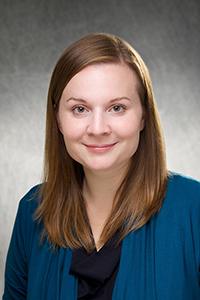
Carissa Gunderson
Fellowship Director
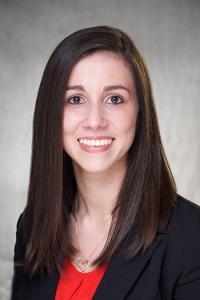
Emira Deumic Shultz
Associate Training Director
Faculty
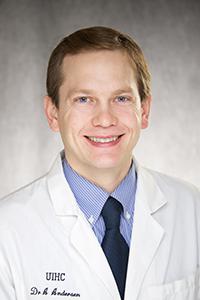
Allan Andersen, MD
Allan Andersen, MD, is a child psychiatrist with clinical expertise in developmental disorders. He also conducts research focusing on the interaction between epigenetic changes and the immune system in psychiatric disorders.
Ashmita Banerjee, MD
Dr. Banerjee is a child and adolescent psychiatrist with clinical expertise in childhood and adolescence mental health conditions, including depressive and anxiety disorders, ADHD, behavioral disorders, and tic disorders/Tourette’s. She is particularly interested in early onset mania and psychosis. She also provides psychiatric care to rural areas throughout the state of Iowa via the Child Health Specialty Clinics of the Stead Family Children’s Hospital.

Nancy Beyer, MD
Nancy Beyer, MD, collaborates with Iowa City schools to enhance access to mental health care through school and community psychiatry programming. She serves as the outpatient and consultation-liaison service medical director. She came to child psychiatry after working 10 years as a pediatric nurse, first completing a graduate degree in Spanish language and literature.
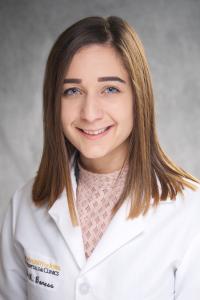
Kaley Boress, PhD
Kaley Boress, PhD is a clinical neuropsychologist who joined the Department of Psychiatry in 2021. She is a lifespan neuropsychologist who works primarily with adolescent, adults, and older adult populations. Her clinical areas of interest include attention deficit/hyperactivity disorder, traumatic brain injury, dementia, Huntington’s disease, epilepsy, and complex medical conditions/comorbid psychiatric disorders. She is also involved in a multidisciplinary neurocritical care clinic where she completes neuropsychological assessment with children and adolescents who have sustained acute neurologic injury.

Emira Deumic Shultz, MD
Emira Deumic Shultz, MD is a child and adolescent psychiatrist with clinical interest in diagnosis and treatment of mental health disorders across the span of childhood. She has a passion for education and teaching, working closely with medical students, residents, and fellows. She is also the Associate Training Director of the Child and Adolescent Psychiatry Fellowship Program.
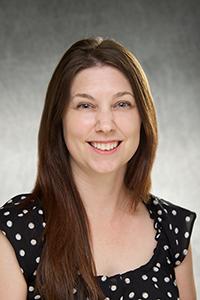
Jamie Elizalde, PhD
Jaime Elizalde, PhD is a child and adolescent psychologist with a specialization in school psychology. Her specialty areas include anxiety disorders, obsessive compulsive disorder, and Tourette Syndrome. Dr. Elizalde is certified through the Tourette Association of America and has completed advanced training for treatment of OCD through the International OCD Foundation.
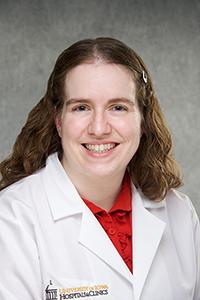
Amanda Elliott, DO
Amanda Elliott, DO, is the Medical Director for the Inpatient Child and Adolescent Psychiatry Unit and has specific expertise in acute-care health services and interdisciplinary approaches to behavior management in youth with challenging behaviors related to psychiatric conditions. She is the 2022-2024 President Elect of the Iowa Psychiatric Physicians Society, having spent the past 4 years serving as Secretary and Treasurer. She serves on multiple department and hospital wide committees to help improve both quality patient care and staff satisfaction and safety. Medical student, resident, and fellow education are a highlight of her day to day work.
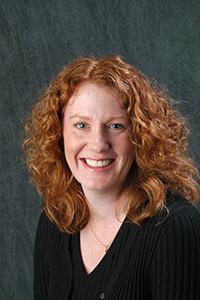
Patricia Espe-Pfeifer, PhD
Patricia Espe-Pfeifer, PhD, directs the Pediatric Neuropsychology Service and is also Director of Sports Psychology and Student-Athlete Mental Health Services for UI Athletics. Her areas of clinical interest include traumatic brain injury, sports-related concussions, epilepsy, stroke, Juvenile Huntington’s Disease, and collegiate athlete mental health. In addition, she specializes in neuropsychological assessment of patients with complex medical histories, including brain injuries as a result of an accident, a stroke, or an infection of the brain, and comorbid psychiatric disorders. Dr. Espe-Pfeifer is a faculty member and provider within the UIHC Stead Family Children’s Hospital Interdisciplinary Neurocritical Care Team and works closely with UI Sports Medicine Concussion Clinic and UI Athletics. She also provides group therapy interventions through the Outpatient Adolescent Dialectical Behavior Therapy (DBT) Program. Her areas of research interest include epilepsy, traumatic brain injury, Duchenne Muscular Dystrophy, and Juvenile Huntington’s Disease.
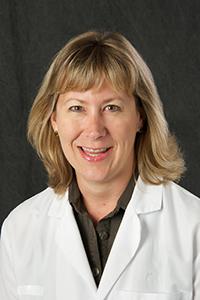
Laura Fuller, PhD, ABPP
Laura Fuller, PhD, ABPP, provides psychological assessment for ADHD, anxiety, depression, learning, and intellectual disability. She specializes in Collaborative and Proactive Solutions, an intervention for children with challenging behaviors, as well as elements of cognitive behavior therapy, dialectical behavior therapy, and SPACE (Supportive Parenting for Anxious Childhood Emotions). Dr. Fuller also sees children and adolescents with voiding dysfunction and Differences of Sexual Development (DSD) together with medical providers. She is the Director of the Psychology Division within the Department of Psychiatry. Dr. Fuller is also heavily involved in the psychotherapy training for the Child & Adolescent Psychiatry fellows.

Carissa Gunderson, MD
Carissa Gunderson, MD, has expertise in evaluation and treatment of ADHD, OCD, and anxiety disorders. She runs two specialty clinics providing interdisciplinary care for children and has completed advanced training for treatment of OCD through the International OCD Foundation. Dr. Gunderson is dedicated to education and is the Program Director of the Child and Adolescent Psychiatry Fellowship and mentors the medical student child psychiatry interest group.
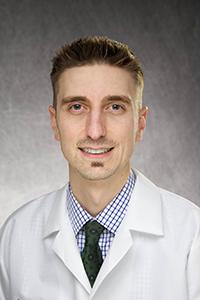
Aaron Kauer, MD
Aaron Kauer, MD has specific interests in treating autism spectrum disorders, tic disorders, and anxiety disorders. He also spends time educating medical students and residents. He is board certified in both child and adult psychiatry.
Jennifer Kuhle, PhD, BCBA-D
Jennifer Kuhle, PhD, BCBA-D is a clinical psychologist with a focus in the assessment and treatment of children and adolescents with challenging behaviors. She is a member of the Intellectual Disabilities/Mental Health team (IDMI) at UIHC and has a history of providing behavioral services in the school setting.
Priya Larson, MD
Priya Larson, MD is a child and adolescent psychiatrist and a co-director of the outpatient clinic. She provides general psychiatric care and participates in team evaluations for autism spectrum disorder. She also specializes in gender dysphoria and is passionate about helping other clinicians work in this arena.

Jill Liesveld, MD
Dr. Liesveld’s clinical interests include medication-assisted treatment and treatment of people with co-occurring substance use disorders and psychiatric illness.
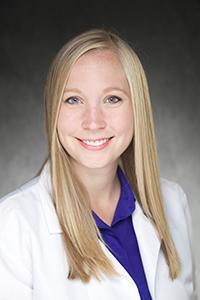
Erin Olufs, PhD
Erin Olufs, PhD, is a pediatric psychologist with specialization in behavioral pediatrics and treatment of somatic symptom disorders. She is a member of two interdisciplinary care teams providing evaluation, consultation, and intervention in both Child and Adolescent Psychiatry and Pediatrics. Her areas of focus include the treatment of ADHD, encopresis, chronic pain, autonomic dysfunction, and functional neurological symptom disorder.
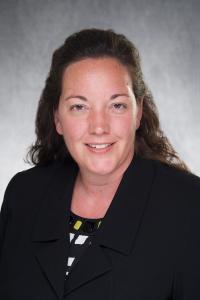
Kelly Pelzel, PhD
Adjunct
Kelly Pelzel, PhD, is a psychologist with interests in infant and early childhood mental health, parent-mediated interventions, early detection of autism, and interventions for young children with autism. She is the clinical coordinator for the University of Iowa Stead Family Children's Hospital Autism Center, the psychology consultant for the Regional Autism Assistance Program, and the president of the Iowa Association for Infant and Early Childhood Mental Health.
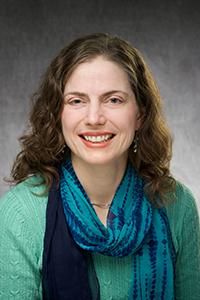
Hanna Stevens, MD, PhD
Hanna Stevens, MD, PhD, is a child and adolescent psychiatrist with expertise in early childhood assessment, ADHD, and research education who runs a developmental neuroscience lab. She is the Child Psychiatry Division Director and an AACAP Distinguished Fellow. Visit her lab website.
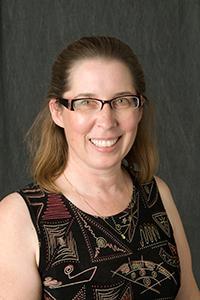
Beth Troutman, PhD
Beth Troutman, PhD, trains providers in Parent-Child Interaction Therapy, an evidence-based practice developed to reduce disruptive behavior. She has developed a modification of PCIT called Integration of Working Models of Attachment into Parent-Child Interaction Therapy (IoWA-PCIT), which integrates findings from attachment theory research into PCIT. Visit her lab site.
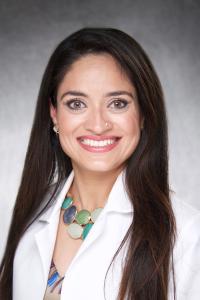
Anureet Walia, MBBS
Dr. Anureet Walia shares a joint appointment within the Departments of Anesthesia, Psychiatry and Pediatrics. She is board certified in Psychiatry, Child & Adolescent Psychiatry and Pain Medicine. Her primary academic interest is treating chronic pain in the pediatric population, and is the founder and director of the Pediatric Comprehensive Pain Clinic where she combines use of her unique board certifications in child and adolescent psychiatry and pain medicine. Besides that, she also provides clinical services in the Child & Adolescent psychiatry inpatient unit and the Adult Chronic Pain Clinic. She is highly engaged in diversity, equity, and inclusion initiatives at the University of Iowa Health Care.
Emeritus
Samuel Kuperman, MD
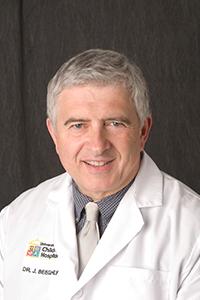
James Beeghly, MD
Program Coordinator
Meggan Riggan-Rocha
University of Iowa Health Care Medical Center
Department of Psychiatry
2900 John Pappajohn Pavilion (JPP)
200 Hawkins Drive
Iowa City, IA 52242
Clinic and Patient Inquiries: 319-356-1188
Residency Inquiries: 319-467-8427
Fax: 319-384-8843
Email: meggan-riggan-rocha@uiowa.edu
